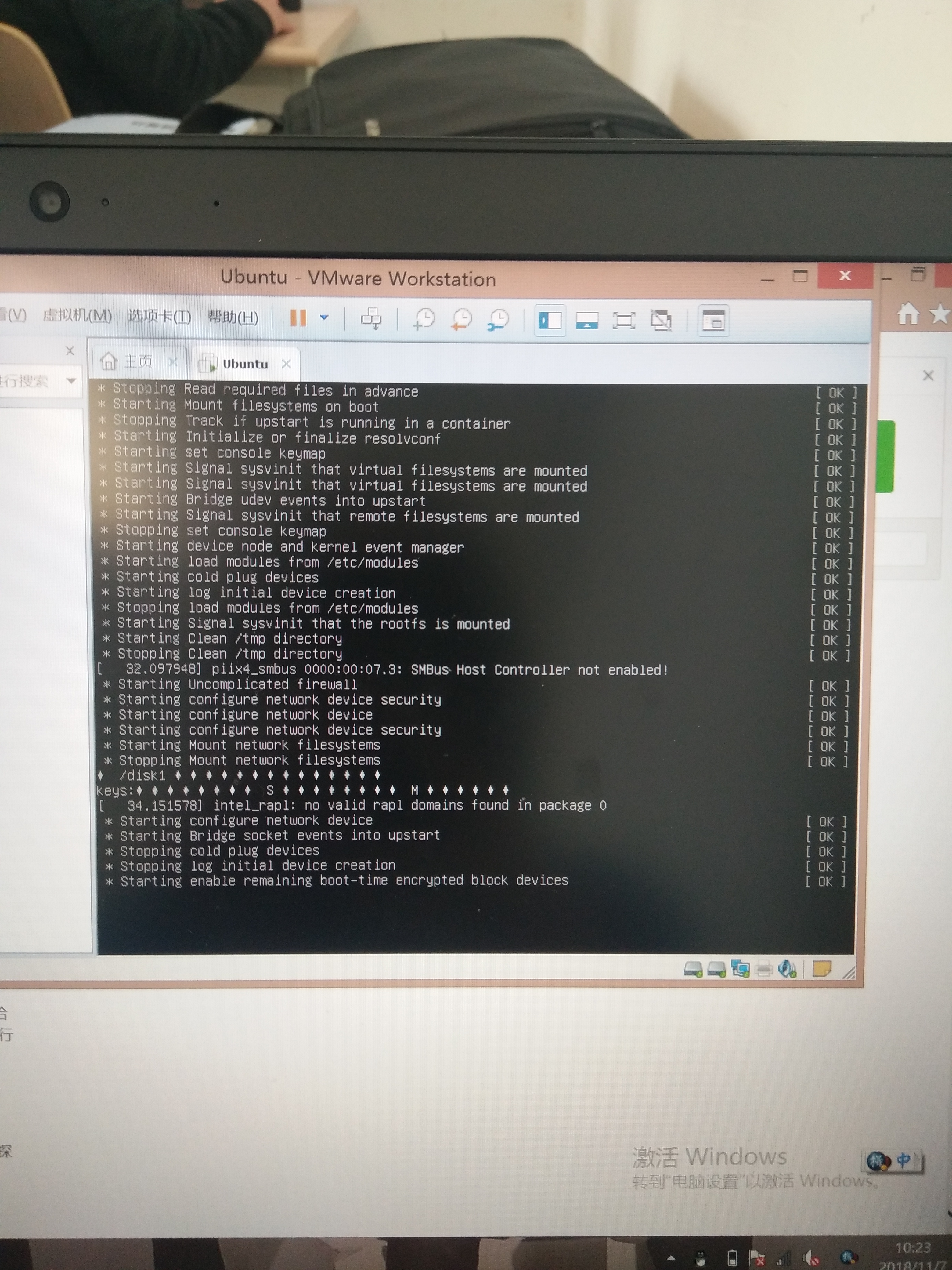可以将文章内容翻译成中文,广告屏蔽插件可能会导致该功能失效(如失效,请关闭广告屏蔽插件后再试):
问题:
I would like to use argparse to parse boolean command-line arguments written as "--foo True" or "--foo False". For example:
my_program --my_boolean_flag False
However, the following test code does not do what I would like:
import argparse
parser = argparse.ArgumentParser(description="My parser")
parser.add_argument("--my_bool", type=bool)
cmd_line = ["--my_bool", "False"]
parsed_args = parser.parse(cmd_line)
Sadly, parsed_args.my_bool evaluates to True. This is the case even when I change cmd_line to be ["--my_bool", ""], which is surprising, since bool("") evalutates to False.
How can I get argparse to parse "False", "F", and their lower-case variants to be False?
回答1:
Yet another solution using the previous suggestions, but with the "correct" parse error from argparse:
def str2bool(v):
if v.lower() in ('yes', 'true', 't', 'y', '1'):
return True
elif v.lower() in ('no', 'false', 'f', 'n', '0'):
return False
else:
raise argparse.ArgumentTypeError('Boolean value expected.')
This is very useful to make switches with default values; for instance
parser.add_argument("--nice", type=str2bool, nargs='?',
const=True, default=NICE,
help="Activate nice mode.")
allows me to use:
script --nice
script --nice <bool>
and still use a default value (specific to the user settings). One (indirectly related) downside with that approach is that the 'nargs' might catch a positional argument -- see this related question and this argparse bug report.
回答2:
I think a more canonical way to do this is via:
command --feature
and
command --no-feature
argparse supports this version nicely:
parser.add_argument('--feature', dest='feature', action='store_true')
parser.add_argument('--no-feature', dest='feature', action='store_false')
parser.set_defaults(feature=True)
Of course, if you really want the --arg <True|False> version, you could pass ast.literal_eval as the "type", or a user defined function ...
def t_or_f(arg):
ua = str(arg).upper()
if 'TRUE'.startswith(ua):
return True
elif 'FALSE'.startswith(ua):
return False
else:
pass #error condition maybe?
回答3:
I recommend mgilson's answer but with a mutually exclusive group
so that you cannot use --feature and --no-feature at the same time.
command --feature
and
command --no-feature
but not
command --feature --no-feature
Script:
feature_parser = parser.add_mutually_exclusive_group(required=False)
feature_parser.add_argument('--feature', dest='feature', action='store_true')
feature_parser.add_argument('--no-feature', dest='feature', action='store_false')
parser.set_defaults(feature=True)
You can then use this helper if you are going to set many of them:
def add_bool_arg(parser, name, default=False):
group = parser.add_mutually_exclusive_group(required=False)
group.add_argument('--' + name, dest=name, action='store_true')
group.add_argument('--no-' + name, dest=name, action='store_false')
parser.set_defaults(**{name:default})
add_bool_arg(parser, 'useful-feature')
add_bool_arg(parser, 'even-more-useful-feature')
回答4:
There seems to be some confusion as to what type=bool and type='bool' might mean. Should one (or both) mean 'run the function bool(), or 'return a boolean'? As it stands type='bool' means nothing. add_argument gives a 'bool' is not callable error, same as if you used type='foobar', or type='int'.
But argparse does have registry that lets you define keywords like this. It is mostly used for action, e.g. `action='store_true'. You can see the registered keywords with:
parser._registries
which displays a dictionary
{'action': {None: argparse._StoreAction,
'append': argparse._AppendAction,
'append_const': argparse._AppendConstAction,
...
'type': {None: <function argparse.identity>}}
There are lots of actions defined, but only one type, the default one, argparse.identity.
This code defines a 'bool' keyword:
def str2bool(v):
#susendberg's function
return v.lower() in ("yes", "true", "t", "1")
p = argparse.ArgumentParser()
p.register('type','bool',str2bool) # add type keyword to registries
p.add_argument('-b',type='bool') # do not use 'type=bool'
# p.add_argument('-b',type=str2bool) # works just as well
p.parse_args('-b false'.split())
Namespace(b=False)
parser.register() is not documented, but also not hidden. For the most part the programmer does not need to know about it because type and action take function and class values. There are lots of stackoverflow examples of defining custom values for both.
In case it isn't obvious from the previous discussion, bool() does not mean 'parse a string'. From the Python documentation:
bool(x): Convert a value to a Boolean, using the standard truth testing procedure.
Contrast this with
int(x): Convert a number or string x to an integer.
回答5:
oneliner:
parser.add_argument('--is_debug', default=False, type=lambda x: (str(x).lower() == 'true'))
回答6:
I was looking for the same issue, and imho the pretty solution is :
def str2bool(v):
return v.lower() in ("yes", "true", "t", "1")
and using that to parse the string to boolean as suggested above.
回答7:
Here is another variation without extra row/s to set default values. The bool always have a value assigned so that it can be used in logical statements without pre-checks.
import argparse
parser = argparse.ArgumentParser(description="Parse bool")
parser.add_argument("--do-something", default=False, action="store_true" , help="Flag to do something")
args = parser.parse_args()
if args.do_something == True:
print("Do something")
else:
print("Don't do something")
print("Check that args.do_something=" + str(args.do_something) + " is always a bool")
回答8:
In addition to what @mgilson said, it should be noted that there's also a ArgumentParser.add_mutually_exclusive_group(required=False) method that would make it trivial to enforce that --flag and --no-flag aren't used at the same time.
回答9:
This works for everything I expect it to:
add_boolean_argument(parser, 'foo', default=True)
parser.parse_args([]) # Whatever the default was
parser.parse_args(['--foo']) # True
parser.parse_args(['--nofoo']) # False
parser.parse_args(['--foo=true']) # True
parser.parse_args(['--foo=false']) # False
parser.parse_args(['--foo', '--nofoo']) # Error
The code:
def _str_to_bool(s):
"""Convert string to bool (in argparse context)."""
if s.lower() not in ['true', 'false']:
raise ValueError('Need bool; got %r' % s)
return {'true': True, 'false': False}[s.lower()]
def add_boolean_argument(parser, name, default=False):
"""Add a boolean argument to an ArgumentParser instance."""
group = parser.add_mutually_exclusive_group()
group.add_argument(
'--' + name, nargs='?', default=default, const=True, type=_str_to_bool)
group.add_argument('--no' + name, dest=name, action='store_false')
回答10:
A simpler way would be to use as below.
parser.add_argument('--feature', type=lambda s: s.lower() in ['true', 't', 'yes', '1'])
回答11:
class FlagAction(argparse.Action):
# From http://bugs.python.org/issue8538
def __init__(self, option_strings, dest, default=None,
required=False, help=None, metavar=None,
positive_prefixes=['--'], negative_prefixes=['--no-']):
self.positive_strings = set()
self.negative_strings = set()
for string in option_strings:
assert re.match(r'--[A-z]+', string)
suffix = string[2:]
for positive_prefix in positive_prefixes:
self.positive_strings.add(positive_prefix + suffix)
for negative_prefix in negative_prefixes:
self.negative_strings.add(negative_prefix + suffix)
strings = list(self.positive_strings | self.negative_strings)
super(FlagAction, self).__init__(option_strings=strings, dest=dest,
nargs=0, const=None, default=default, type=bool, choices=None,
required=required, help=help, metavar=metavar)
def __call__(self, parser, namespace, values, option_string=None):
if option_string in self.positive_strings:
setattr(namespace, self.dest, True)
else:
setattr(namespace, self.dest, False)
回答12:
A quite similar way is to use:
feature.add_argument('--feature',action='store_true')
and if you set the argument --feature in your command
command --feature
the argument will be True, if you do not set type --feature the arguments default is always False!
回答13:
I think the most canonical way will be:
parser.add_argument('--ensure', nargs='*', default=None)
ENSURE = config.ensure is None




